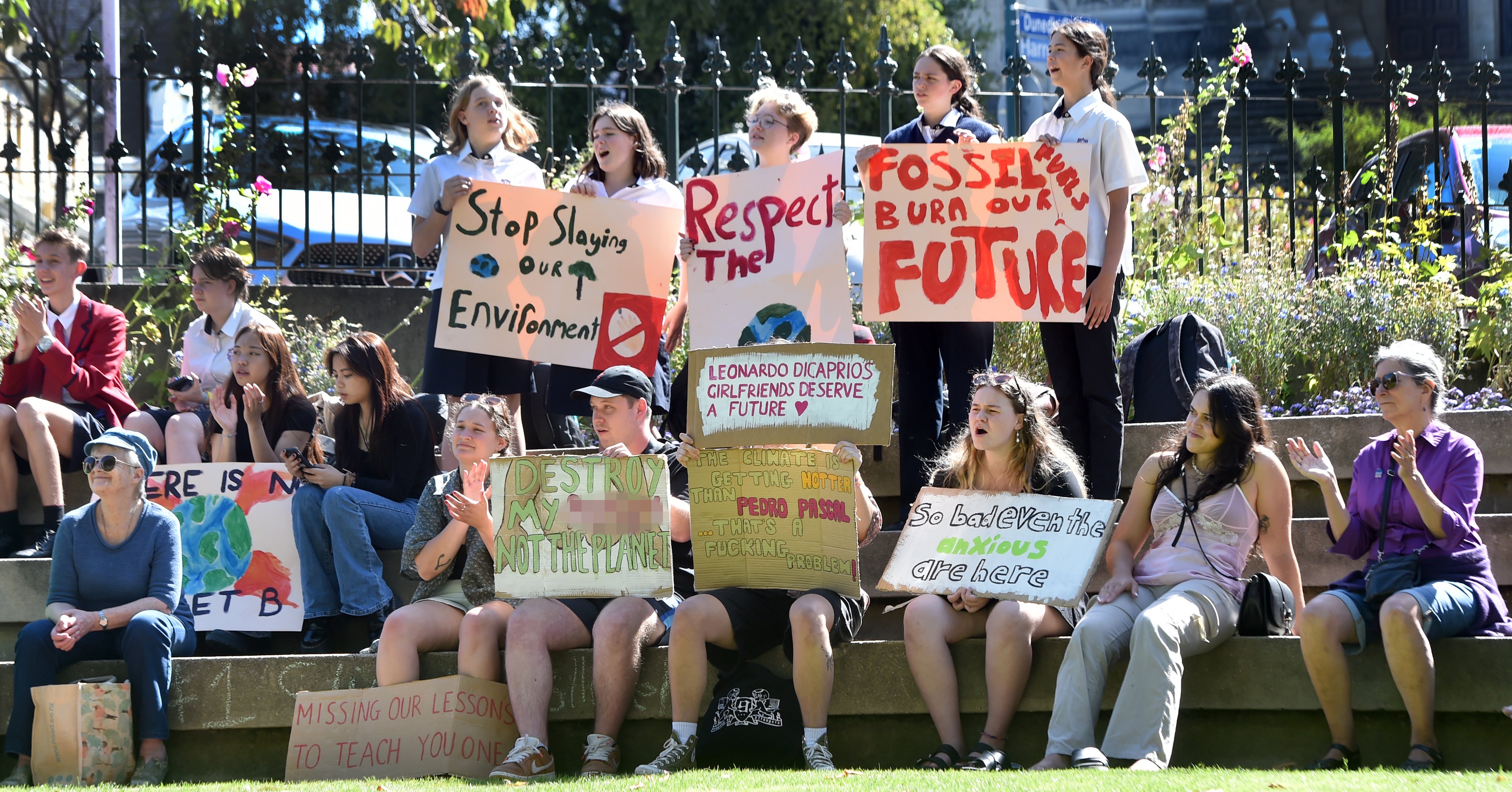
The ICJ’s opinion is clear. It confirms that states have a legal duty to prevent significant harm to the environment from activities under their jurisdiction. They are obligated to protect and preserve the marine environment from adverse climate change effects.
They are obliged to respect and ensure the effective enjoyment of human rights by taking measures to protect the climate system and other parts of the environment for the sake of communities. It is such an important win for people and the planet.
Predictably, the government’s response will consist mostly of howls of outrage. Look at its recent dismissive response to the United Nations asking questions about the Regulatory Standards Bill. No-one is expecting a mature response from it.
But in the face of escalating climate disasters, from vanishing coastlines to wild storms, such complaints from ministers will find little sympathy in New Zealand communities.
Too many families are already suffering the consequences of a warming planet. For the government to deny its duty to act is not just irresponsible. It is immoral.
There has been too much harm, too much damage and too little responsibility.
What is most striking is who drove this legal battle — not the wealthy or powerful, but the young and the vulnerable. The push for an ICJ opinion was led by Pacific Island Students Fighting Climate Change, alongside youth climate justice groups across the globe.
Of course it was. Who has more to lose from rising seas, extreme weather and the spiralling costs of inaction?
It was Vanuatu, a nation with a GDP of just $1 billion that championed this cause for island states, not New Zealand, which shares the same existential threats but has far greater resources to advocate for solutions to them.
This pattern of those with the least taking the boldest action is echoed at home. Here, students and Māori are leading the legal fight for climate accountability. Students for Climate Solutions awaits a Supreme Court ruling on whether the government must consider climate impacts when approving fossil fuel exploration.
Meanwhile, Mike Smith (Ngāpuhi, Ngāti Kahu) has taken New Zealand’s biggest polluters to court, arguing that climate change breaches his whānau’s obligations as kaitiaki of their whenua, wai and moana.
The ICJ opinion bolsters these arguments, affirming that environmental protection is a legal and moral imperative, even as the government digs in its heels.
In a shockingly, but not unsurprising, dismissive three-page submission to the ICJ, the New Zealand government outright rejected the idea of a universal "right to a clean, healthy and sustainable environment".
This from a government whose entire economy, from agriculture, to fishing, to tourism, depends on that very right. We all rely on the protection of the environment because we all rely on the environment for health and food.
It is pretty clear so far that we cannot rely on the government to keep New Zealanders’ interests in a protected climate and environment to the front of their consideration. The recent report by the government’s independent reference group set up by the Ministry for the Environment shows where the government is heading.
While the report recognises the need for climate adaptation, its recommendation to withdraw government support for financial assistance and property buy-outs is a moral wrong.
On the one hand the government refuses to accept we have a right to a clean environment and is actively supporting greenhouse gas-emitting industries, and at the same time considering withdrawing any future financial support to the families directly suffering the impacts from those emissions.
Climate change is not an issue for one or other party any more. It is not a matter of political sides. It is a global catastrophe and a local tragedy driven, in my view, by greed.
We know how important climate change effects are in our city; we have felt those impacts. In the next 18 months we have two crucial opportunities to make our right to a clean, healthy and sustainable environment the most pressing priority locally, regionally and nationally.
And therefore internationally. It is how we can play our part.
If the most vulnerable can fight for their future, so can we.
■Metiria Stanton Turei is a senior law lecturer at the University of Otago and a former Green Party MP and co-leader.












